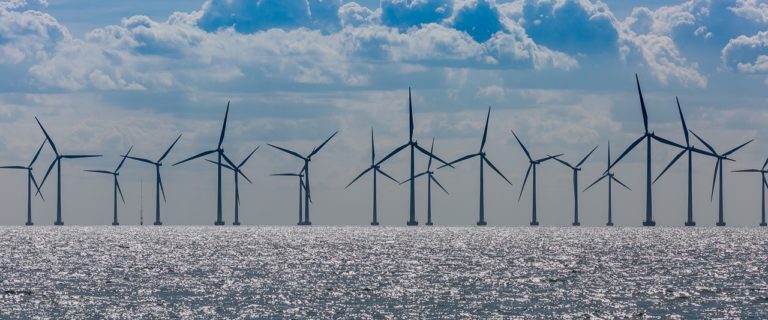Wind farms threaten to speed up North Sea decommissioning

Oil and gas operators planning to prolong fields’ lifespan may find themselves increasingly in conflict with wind farm developers
A consortium of Dutch, German and Danish companies wrote in a concept paper on 9 July that the North Sea Wind Power Hub (NSWPH) they are developing would have an estimated capacity of 180GW by 2045, providing clean power to “hundreds of millions of Europeans” in those countries and the UK. “To meet the ambitious targets as set in the Paris Agreement, a large-scale roll-out of offshore wind is required. Increased spatial use by offshore wind energy and transmission infrastructure is then expected accordingly.” Because the turbine foundations deemed the most cost effective need a water depth of less than 55 metres—and as the targeted area is already used extensively for shipping, military exercises and fisheries—there is not currently enough available space for the required number of offshore wind farms (OWFs). “If we take an exclusionary approach, and only install farms in areas that are not currently being used, there simply is not enough room for a cost effective, large-scale build out of offshore wind power in the North Sea” says Peter Larsen, a development consultant at Danish grid firm Energinet. The firm is developing the project with the Dutch power grid operator Tennet, its gas equivalent Gasunie and the Port of Rotterdam.
Competing timeframes
The NSWPH’s first phase would be connected to shore as early the 2030s. But the British authorities expect decommissioning work to continue in the area until 2060. Larsen says the eventual decision on whether projects such as the NSWPH should take precedence over the oil and gas sector in the North Sea is one that must be taken by governments. “Which will be the most cost-effective source of power from a social-economic perspective, as part of the green energy transition?” he asks. It is fair to say that it is a leading question. Currently only 3pc of the area the NSWPH would need is available, or only 14,000 km2, according to the NSWPH researchers’ February feasibility study. The largest spatial risk created by the oil and gas sectors is not platforms themselves, but the helicopter landing safe zone of 2.5 nautical miles around these. In some cases, it may be possible to site an OWF’s turbines to accommodate these zones—but not all. “After drawing OWFs in the GIS mapping tool, it was discovered that there are attractive farm locations that have so much overlap between helicopter zones, that one can actually not adapt the wind farm, so the oil and gas function needs to adapt,” the study says. The authors also say confidentiality on which specific platforms will be gone by the year 2030 makes it harder to make spatial plans. While that information is commercially sensitive, oil producer lobby goup OGUK found last November in a report on decommissioning that higher oil prices and a “relentless focus” on efficiency were pushing field retirements further into the future. Its report forecasts that decommissioning activity will remain relatively stable over the next decade.
Peaceful co-existence
OGUK’s view is that there is no need for conflict between the wind power and oil and gas in the North Sea—and that sharing the spatial resources could be beneficial. “Strong cooperation between different sectors is crucial as the UK invests in all forms of energy production to meet its future energy needs”, OGUK says. “The overlap phase when decommissioning takes place alongside the installation of new offshore wind structures could provide the opportunity for the different sectors to align interests and collaborate on things like logistics costs and stakeholder engagement.” For its part, the NSWPH developers also accept that “co-utilisation” will be necessary in the future, adding that “the extent to which co-utilization will be needed highly depends on future developments such as the decommissioning of oil and gas platforms”. https://www.petroleum-economist.com/articles/politics-economics/europe-eurasia/2019/wind-farms-threaten-to-speed-up-north-sea-decommissioning?hootPostID=271f29a013ef2922e07192d9cb92b6b3